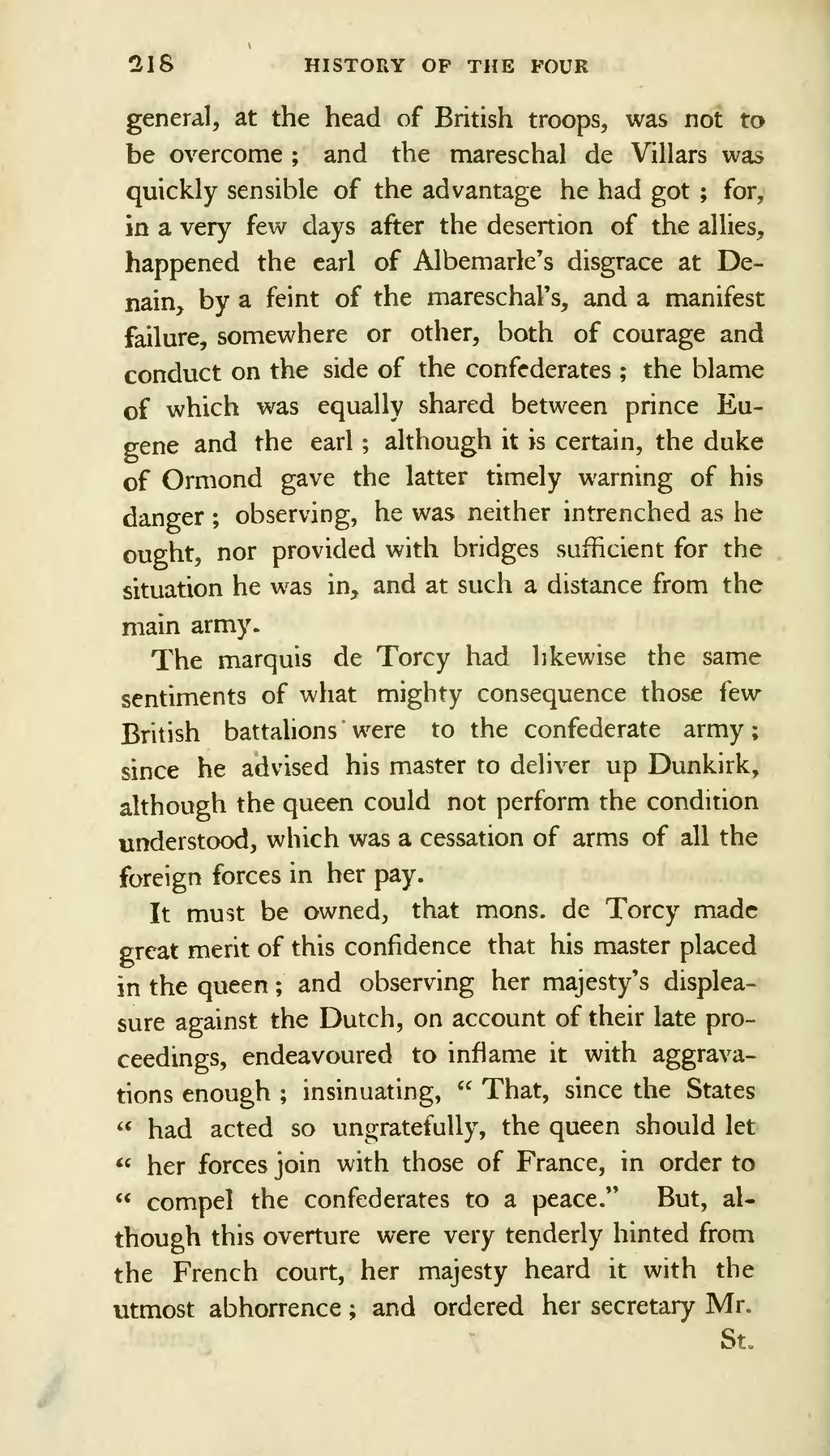general, at the head of British troops, was not to be overcome; and the mareschal de Villars was quickly sensible of the advantage he had got; for, in a very few days after the desertion of the allies, happened the earl of Albemarle's disgrace at Denain, by a feint of the mareschal's, and a manifest failure, somewhere or other, both of courage and conduct on the side of the confederates; the blame of which was equally shared between prince Eugene and the earl; although it is certain, the duke of Ormond gave the latter timely warning of his danger; observing, he was neither intrenched as he ought, nor provided with bridges sufficient for the situation he was in, and at such a distance from the main army.
The marquis de Torcy had likewise the same sentiments of what mighty consequence those few British battalions were to the confederate army; since he advised his master to deliver up Dunkirk, although the queen could not perform the condition understood, which was a cessation of arms of all the foreign forces in her pay.
It must be owned, that mons. de Torcy made great merit of this confidence that his master placed in the queen; and observing her majesty's displeasure against the Dutch, on account of their late proceedings, endeavoured to inflame it with aggravations enough; insinuating, "That, since the States had acted so ungratefully, the queen should let her forces join with those of France, in order to compel the confederates to a peace." But, although this overture were very tenderly hinted from the French court, her majesty heard it with the utmost abhorrence; and ordered her secretary Mr.
St.
